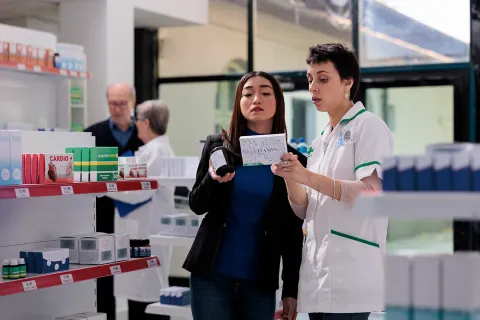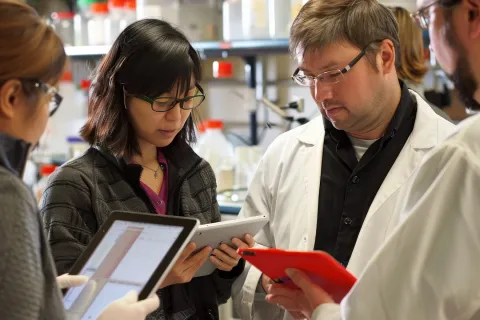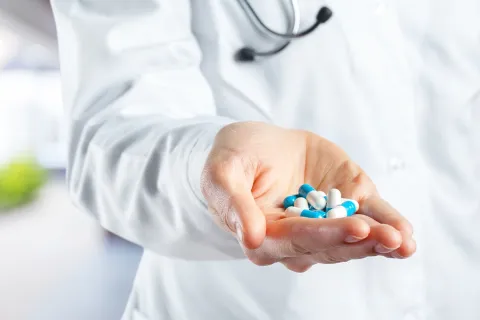
Pharmacovigilance (PV) experts play a crucial role in post-marketing surveillance, ensuring the ongoing safety and effectiveness of pharmaceutical products after they have been approved and made available to the public. This blog delves into the responsibilities, challenges, and best practices of PV experts in post-marketing surveillance.
Responsibilities of PV Experts
- Adverse Event Reporting: PV experts encourage healthcare professionals and patients to report any adverse events or side effects associated with a drug or medical product to regulatory authorities. This information is crucial for detecting previously unrecognized effects and improving product safety.
- Signal Detection: PV experts analyze data from adverse event reports, clinical studies, and other sources to detect potential safety issues or signals that may require further investigation. This involves identifying patterns and trends in the data to identify potential risks.
- Risk Assessment: The data collected during signal detection is evaluated to determine the severity and frequency of any safety issues. This assessment helps in determining whether any regulatory action, such as a safety alert or product recall, is necessary.
- Risk Communication: PV experts communicate information about any safety issues or adverse events associated with a drug or medical product to healthcare professionals and patients. This helps them make informed decisions about the use of these products.
- Post-Marketing Studies: Additional studies may be conducted to further evaluate the safety and effectiveness of a drug or medical product after it has been approved. These studies help in refining the understanding of the product's safety profile and identifying any new risks.
Challenges Faced by PV Experts
- Managing Large Volumes of Data: PV experts often face the challenge of managing large volumes of data from various sources, including spontaneous reporting, clinical trials, and electronic health records. This requires efficient data management systems and analytical tools to process the data effectively.
- Staying Up-to-Date with Regulatory Changes: PV experts must stay current with regulatory requirements and changes to ensure compliance and to identify any new safety issues that may arise. This involves continuous training and professional development to maintain expertise in the field.
- Maintaining Effective Communication Channels: PV experts need to maintain effective communication channels with healthcare professionals, patients, and regulatory authorities to ensure that all stakeholders are informed about any safety issues or changes to product labeling. This requires clear and transparent communication strategies.
Best Practices for PV Experts
- Effective Signal Detection: PV experts should employ advanced data mining techniques and machine learning algorithms to detect signals more efficiently. This includes using data from electronic health records and administrative claims to identify potential safety issues.
- Efficient Case Processing: PV experts should streamline the case processing workflow to ensure that all reported adverse events are thoroughly reviewed and classified correctly. This involves implementing standardized procedures and using automation tools where possible.
- Collaboration with Other Departments: PV experts should collaborate with other departments, such as clinical research, regulatory affairs, and quality assurance, to ensure a comprehensive approach to drug safety surveillance. This collaboration helps in identifying potential safety issues early and in implementing corrective actions effectively.
- Professional Development: PV experts should engage in ongoing professional development, including training programs, certifications, and continuing education, to stay current with industry developments and best practices. This helps in maintaining a high level of expertise and compliance with regulatory requirements.
Future Trends
1. Advancements in Data Analytics:
- PV experts will need to leverage advancements in data analytics and artificial intelligence to improve signal detection and risk assessment. This will involve the use of machine learning algorithms and natural language processing to analyze large datasets and identify potential safety issues more efficiently.
2. Regulatory Compliance:
- PV experts will need to ensure compliance with evolving regulatory frameworks and guidelines. This will involve staying up-to-date with new regulatory requirements and implementing changes to processes and systems to maintain compliance.
3. Patient Involvement:
- PV experts will need to involve patients more actively in the drug safety process. This will involve collecting and analysing patient-reported data to better understand the risks and benefits of pharmaceutical products and to improve patient engagement in drug safety.
Conclusion
PV experts play a vital role in post-marketing surveillance by ensuring the ongoing safety and effectiveness of pharmaceutical products. Their responsibilities include adverse event reporting, signal detection, risk assessment, risk communication, and conducting post-marketing studies. Despite the challenges they face, PV experts employ best practices to manage data, collaborate with other departments, and engage in ongoing professional development. The work of PV experts directly impacts patient safety and is crucial for maintaining the integrity of the pharmaceutical industry. As the field continues to evolve, PV experts from renowned organizations like Freyr can assist in adapting to advancements in data analytics, regulatory compliance, and patient involvement to ensure the highest standards of drug safety.









